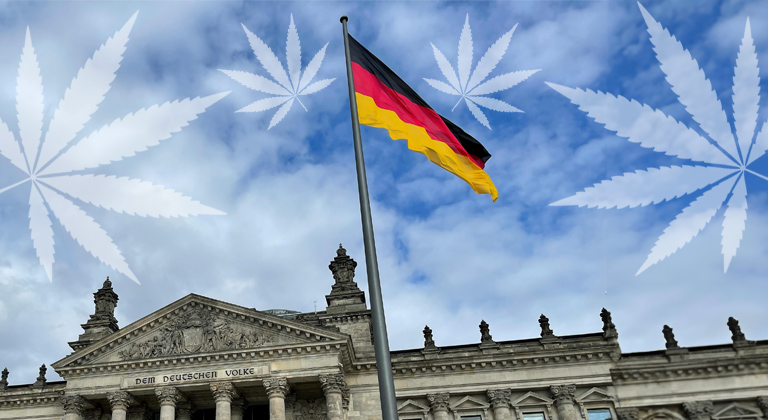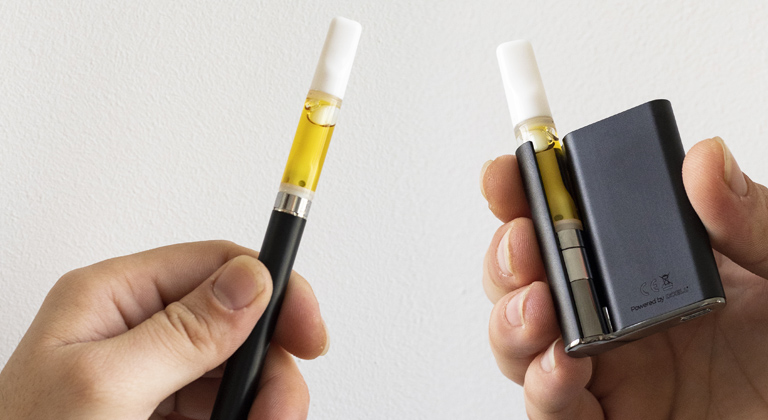In an unprecedented move, Germany has become the second country in Europe, following Malta, to fully legalize cannabis, both for medicinal and recreational use.
The recent approval by the German government signals a remarkable shift in its drug policy and opens a new chapter where the country aligns with the global regulatory trend. It’s a contentious decision that’s sparked much debate and promises to have significant economic, social, and public health impacts.
Let’s examine the German government’s new plan that will grant access to recreational cannabis to individuals over 18.
Historical Context: The Journey of Germany to Legalize Cannabis
For decades, Germany upheld a strict zero-tolerance policy on the consumption and cultivation of cannabis. However, in recent years, this began to change. The apparent failure of the war on drugs, manifesting as an increase in not only consumption but also the black market, and the scientific evidence on the therapeutic benefits of cannabis, have led to a gradual legislative change and a shift in public opinion.
The first significant step in this change of course took place in 2017 when the country legalized cannabis for medicinal use, a law that has enabled Germany to become the most significant medical cannabis market in Europe within a few years.
Experts currently value the German medical cannabis market at around 300 million euros, with about 200,000 patients accessing products through an insurance-covered system.
Germany Has Faced Challenges in Legalizing Recreational Cannabis
After the positive response to the legalization of medicinal cannabis, the next logical step seemed to be total regulation. However, the path has presented more obstacles than political leaders anticipated.
In October 2022, Karl Lauterbach, Germany’s Health Minister, made a statement about the government’s intention to legalize recreational cannabis in the country, without failing to mention the main obstacle: European Union approval.
After two years of back and forth and much uncertainty, it seems that Germany is finally taking the lead, once again, making the total regulation of cannabis official.
But…what will this new scenario look like?
What Will The Model of Recreational Cannabis Regulation in Germany Be Like?
Last Friday of the week, the Bundestag (German Parliament), approved the law that will come into effect starting from April 1 of this year. The Health Minister has declared that this new legal framework will decrease the illegal trafficking of cannabis. “The goal is to put an end to the black market and reduce the number of consumers“, Lauterbach stated.
The law, which has finally been passed, has undergone numerous changes compared to the draft bill presented in 2023. Let’s take a look at this new legal landscape:
- The law permits possession and consumption of up to 50 grams of dried cannabis buds in private spaces and a maximum of 25 grams in public areas.
- Home cultivation is allowed as long as the maximum of three plants per person isn’t exceeded.
- Larger scale production will be structured according to the Spanish cannabis club model. These clubs will have a maximum of 500 members, and the yield will be divided amongst them.
- Cannabis can only be cultivated collectively by the clubs. Commercial activity is prohibited, and they cannot profit from this activity. The yield will be for distribution among club members for private consumption.
- Consumption of cannabis isn’t permitted within clubs; these will be spaces solely for picking up cannabis flowers.
- Sentences for possession or cultivation will be retrospectively removed from the criminal records. With this, up to 100,000 related offenses will be reviewed.
- Cannabis consumption in public will be illegal in certain places. Cannabis products cannot be used within 100 meters of schools or sports centers and it also won’t be permitted in pedestrian zones after 7:00 pm.
- Eighteen months after the new law takes effect, an evaluation of its effects on public health, particularly on children and adolescents, will be carried out.
Green Light in Germany: Controversy Ensues
The new progressive law hasn’t been without controversy from both sides, both from proponents of cannabis legalization and its detractors. It seems that you can’t please everyone and hence, the proposed bill Karl Lauterbach presented in April of 2023 took longer than expected to be approved.
Despite the wave of optimism this news has generated, challenges persist. On one hand, there is critical concern from pro-legalization activists questioning the government’s ability to effectively manage this new recreational cannabis market, and also finding the new model to be overly restrictive.
On the other hand, the proverbial elephant in the room is still present, as the new law must navigate the complex international legal framework due to the UN drug conventions. This is something only Malta has dared to do in Europe. The fact that one of the most influential countries in the European Union is taking this decision will undoubtedly bring about changes in legislation in other community countries, who will be closely monitoring Germany’s progression in this new scenario.
Experts predict a domino effect in cannabis regulation within Europe and investors from other more mature markets like Canada and the US have set their sights on the emerging European market.
Additionally, the Health Minister affirmed that he’s convinced that this new law will result in a decrease in criminal activity and an improvement in public health. The government also expects an increase in state tax income and a significant decrease in illicit market activity.
The program highlights the need to educate the public on risk prevention and the side effects associated with excessive cannabis consumption. The government will therefore provide educational resources to its citizens, especially the youth, to inform them about the real effects of cannabis on their health and to guide consumers towards safe and responsible usage of the plant.
Opposition to the New Law to Legalize Recreational Cannabis
However, not everyone agrees with these predictions. This was shown in the vote that took place last Friday, February 23rd; the approval of the new law won votes from members of the social democratic, green, liberal, and the left coalition.
On the other hand, the Christian Democratic opposition and the far-right Alternative for Germany party voted against the law, strongly expressing their disagreement with these new measures, which they consider a public health threat.
Last year, when the draft bill was introduced, the Christian Democratic opposition party accused the government of risking an increase in excessive consumption and health hazards related to cannabis.
Despite this, the Health Minister has stood his ground, stating that despite being in favor of prohibition in the past, the weight of scientific evidence has changed his mind. Lauterbach ensures that the decriminalization of the substance combined with public education will work.

Final Thoughts on the Full Legalization of Cannabis in Germany
The path embarked on by Germany to approve the legalization of recreational use of cannabis signifies a historic step that will likely have a significant impact on global drug policy.
A shift toward a more liberal view based on scientific evidence that holds the potential to transform both the cannabis market and public opinions on this plant.
However, the success of this new policy undertaken by Germany depends on how the new measures will be implemented and the government’s ability to meet the outlined objectives concerning safety, health, and social justice.
We’ll continue to closely observe the changes occurring in Germany, and across the globe, that seem to indicate we’re on the brink of a new legal paradigm that will, undoubtedly, impact the entire cannabis industry.
What are your thoughts? Leave a comment and join this debate.
What do you think of the upcoming cannabis legalization in Germany? Would you like something similar in your country or would you change something? Leave a comment and share your opinion with the community.
Cali Terpenes









